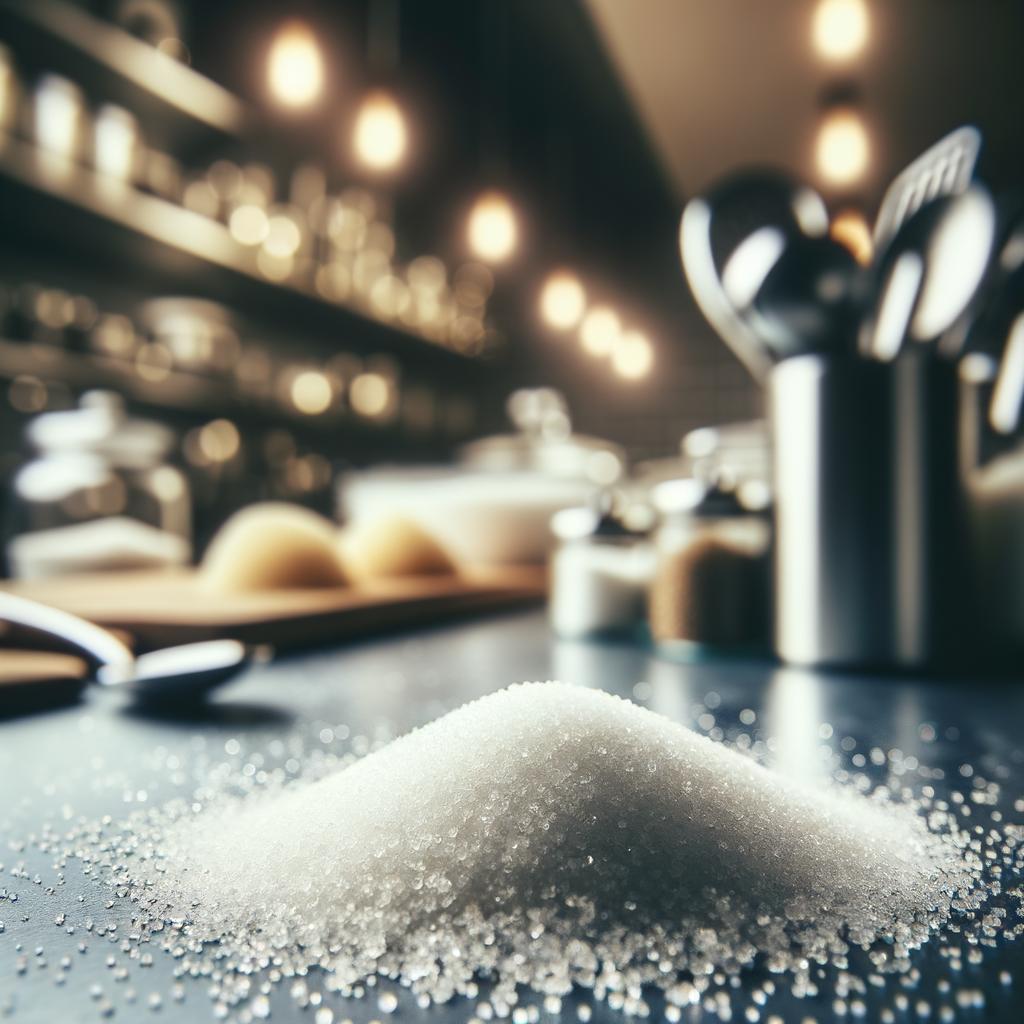Granulated Sugar

Description Granulated sugar, a glorious gem in the realm of food, is a crystalline sweetener that graces our kitchens with its sparkling presence. Its appearance is akin to a field of shimmering diamonds, with each crystal catching the light in a unique way. The texture is gritty and crisp, dissolving effortlessly on the tongue to release a sweet symphony of flavor. The sweetness is pure and intense, yet it possesses an understated simplicity, making it a versatile ingredient in a myriad of dishes. Granulated sugar's unique characteristic lies in its ability to not just sweeten, but also add texture and volume to dishes, setting it apart from other sweeteners like honey or syrup.
Primary Uses Granulated sugar is a culinary chameleon, seamlessly adapting to a multitude of cuisines and dishes. It is the silent hero in baking, providing structure to cakes, a tender crumb to cookies, and a golden crust to pies. It's also a key player in savory dishes, balancing flavors and enhancing the natural sweetness of vegetables. Beyond the culinary world, granulated sugar also finds its place in home remedies, acting as a natural exfoliant in skincare and soothing sore throats when combined with warm water.
History The tale of granulated sugar is as sweet as its taste. Originating in the Indian subcontinent, it was first extracted from sugarcane over two millennia ago. The Greeks and Romans called it 'Indian Salt' and it was a luxury only the wealthy could afford. Over time, with the discovery of the New World and the establishment of sugar plantations, sugar became a household staple. In the Victorian era, sugar took on a romantic role, with intricate sugar sculptures becoming a centerpiece of grand feasts. Today, it remains a beloved ingredient, its popularity undimmed by time.
Nutritional Information Granulated sugar is primarily composed of sucrose, a simple carbohydrate. While it is energy-dense, providing 4 calories per gram, it lacks vitamins and minerals, earning it the term 'empty calories'. However, in moderation, it can be part of a balanced diet. Compared to other sweeteners like honey, it has a higher glycemic index, meaning it can cause a quicker spike in blood sugar levels. However, the joy it brings to our taste buds and the magic it lends to our cooking makes it a cherished part of our culinary journeys.

